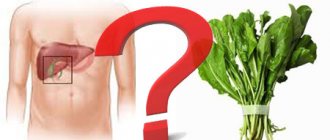The black color of stool is a deviation from the norm, but the reasons for the appearance of black stool are not always associated with pathological problems, that is, diseases. There are a number of factors that can affect the color of your stool and make your stool appear dark or almost black in color. One thing is certain, if black feces or black diarrhea appear in a child or an adult and at the same time there is severe pain in the lower abdomen, high body temperature or very severe loss of strength, nausea and vomiting, with such symptoms you cannot think about self-medication at home , you should definitely seek help from a doctor. And if there are traces of blood in the black stool, there are scarlet clots of bloody discharge or scarlet blood, and the person’s condition is rapidly deteriorating, emergency medical help should be called.
The act of defecation is a rather complex physiological process through which the body is freed from by-products of its vital activity. Therefore, it is so important to know what the color of stool should be in a healthy person? As a rule, the stool of a healthy person is brown in color, so any deviations from this indicator should be a cause for concern. If the stool becomes black, you should first pay attention to the state of the digestive system. Diagnosing a specific disease based solely on the color of stool is quite difficult, so additional research is indispensable.
In addition, one should take into account the fact that the color of feces and feces largely depends on nutrition, by changing which you can completely get rid of the problem. If, even a few days after changing the diet, the color of the stool remains black, you should consult with a specialized specialist.
The main reasons for black feces in an adult, why the poop turned black
What foods can make stool black or dark gray?
Black feces can be either a harmless symptom or a harbinger of serious diseases. Quite safe factors include eating certain foods that give the stool an unusual color. What foods can turn stool black or dark? The following foods can give excrement a black tint:
1 liver, blood sausage, half-raw meat;
2 prunes;
3 berries: blueberries, blackberries, blue grapes, red and black currants;
4 red beets;
5 grenades;
6 tomatoes;
7 strong coffee or tea in large quantities;
8 apples;
9 bananas.
What can I do to make my stool a normal color? If the change in the color of stool is due to the diet, then a temporary refusal of the above foods will certainly lead to its normalization.
In addition, black stool after alcohol can be an unexpected symptom for many alcohol drinkers, especially with prolonged intoxication of the body with alcohol. Why does alcohol make stool black? The fact is that alcohol intoxication can lead to an imbalance of healthy intestinal microflora, as a result of which the feces acquire a black tint and a liquid consistency. In this case, the restoration of the natural color of stool occurs after the body has been completely cleansed of toxins, that is, about a couple of days after the last drink.
Dark stool in a child, reasons. The appearance of black feces in childhood without a change in the general condition is a variant of the norm and should not become a reason for panic, however, if the situation repeats itself several times, a visit to the doctor cannot be avoided. Black poop in children requires special attention because... The child’s body is much more susceptible to any influence due to the lower ability of the immune system to resist pathogens compared to the immune system of an adult.
Change in stool color due to pills and medications
Quite harmless factors in the blackening of stool include taking certain medications. At the same time, experts recommend paying attention to the presence of accompanying symptoms - the presence of nausea, high body temperature and deterioration in general well-being should be a reason for immediate contact with a specialist. What pills or medications can make stool black? The following medications affect the color of stool:
1 medicines that contain iron (Sorbifer, Aktiferrin, Maltofer and others);
2 Activated charcoal makes poop dark gray or black;
3 complex vitamins in large quantities can make adult stools dark, dark brown or almost black in color;
4 anti-inflammatory drugs can make an adult's stool almost black;
5 black stools may occur from heartburn medication;
6 if the stool is darkened, it may be bismuth preparations.
As a rule, the likelihood of such a side effect is indicated in the instructions for the drug, so before you start taking it, it is recommended to read it carefully so that the change in the color of the stool does not take you by surprise. The black color of stool while taking certain medications should not be a reason to discontinue them, but you should definitely inform your doctor about this deviation.
What diseases can there be if the stool is often black?
In addition to the above reasons, the appearance of black feces can be a sign of quite serious diseases, for example:
1 malignant pathologies of the hematopoietic system;
2 black poops may appear if the diagnosis is acute gastritis;
3 ulcerative lesions of the stomach or intestines;
4 histoplasmosis;
5 internal bleeding;
6 fungal infection of internal organs;
7 iron deficiency anemia;
8 infectious lesions of the liver, provoking changes in its tissues;
9 varicose veins in the stomach;
10 malignant neoplasms in the digestive tract;
11 Crohn's disease.
Any of the above diseases poses a direct threat to human health and life, so the detection of black feces should be the reason for diagnosis and initiation of treatment.
Cirrhosis of the liver
Liver cirrhosis is a disease in which liver tissue is damaged and dies. In the initial stages, stool may be lightened or white, which is caused by the lack of production of a specific secretion. However, cirrhosis can provoke the development of serious bleeding, which turns light-colored stool black. Also, with cirrhosis of the liver, the hemorrhoidal veins dilate significantly.
Over time, they become inflamed and burst, and because of the blood released, the stool acquires this color. Typically, stool in cirrhosis meets the following characteristics:
- may have bloody impurities;
- have a liquid, unformed consistency;
- have small strings of mucus;
- always come out in small quantities;
- defecation occurs with severe discomfort;
- after going to the toilet, a person still suffers for some time from pain, burning and itching in the anus;
- Constipation often occurs.
If you begin to notice that a large amount of blood is coming out with your stool, you should consult a doctor. If the stool suddenly turns black, you can call an ambulance - in case of cirrhosis, this may indicate complete death of the liver. The blackening of stool during bleeding is due to the fact that the blood, which had been in the stomach for some time, had time to be digested and captured part of the processed food. Your doctor will be able to tell you exactly what disease the black stool is a sign of.
We invite you to read: Honey and apple cider vinegar for weight loss: drink recipe
Black mucus in stool, causes
In addition to the fact that the color of the stool itself may become black, sometimes streaks of black mucus or dark inclusions of glandular formations may appear in the stool. What could be the reasons for the appearance of black mucus in the stool of an adult?
Firstly, black mucus in the stool of an adult, 16 years of age and older, can appear for completely different reasons. Namely, when a person notices darkening of mucus streaks in the stool, these may be already coagulated blood impurities, which are observed in diseases of the intestines, stomach and other organs of the digestive tract. Black mucus from blood in the stool can be caused by the development of ulcers, cracks or hemorrhagic inflammatory processes. If the black dots in the stool look more like flakes, then this may be a disease affecting the small intestine. If the mucus in the stool is more dark gray or gray than black, then such symptoms are characteristic of damage to the descending rectum. What to do if there are dark gray or almost black clots in the stool of an adult. It is definitely recommended to seek help from a doctor, because... in most cases, such symptoms are signs of the development of pathology, and in some cases, cancer.
What foods cause black stool?
If you see your own black feces, you shouldn’t panic right away. Most likely the reason is the food eaten the day before. In the vast majority of cases, this is what causes the change in color of stool. The most common foods that cause blackening of stool are:
- after beets and salads with them;
- coffee;
- red wine;
- blueberries, blueberries, currants, pomegranate, black grapes, chokeberries, blackberries;
- dried prune fruits;
- bananas;
- tomatoes and juice from them;
- so-called blood sausages and medium-rare steaks;
- liver.
Moreover, there is no need to worry if the change in color of stool is not accompanied by painful or uncomfortable sensations. Just observe your stool patterns for a few days. If the changes are caused by food, then during this time everything will return to normal.
Another article on this topic: Where is the pancreas located?
Why black poop is dangerous and what you should be concerned about
Most often, a change in stool color, if it is not accompanied by other painful symptoms, is not the cause of the development of pathology. But if the stool has become dark, almost black, and at the same time there is severe nausea, vomiting or chills, the body temperature rises, severe and unbearable pain in the abdomen appears, these are already dangerous symptoms. If the stool turns black due to blood getting into it, then you should consult a doctor immediately. And if a person is very weak due to darkening of the stool and blood getting into the stool, if the person loses consciousness, you should immediately call an ambulance.
Bleeding in the small intestine, esophagus or stomach is very dangerous both in itself and as a consequence of many serious diseases, sometimes of a malignant nature. What is the main danger of changing the color of stool to a darker color? Such a symptom may be a sign of the development of the following list of health-hazardous diseases: Crohn's disease, infectious diseases that affect the intestines or stomach, helminthic infestations, the formation of polyps, pancreatitis, spastic colitis, the development of hemorrhoids (including those with cracks), the appearance of a tumor in intestines or stomach, proctitis, spastic colitis. Very black and dark poop can even be caused by diseases of the respiratory system, an allergic reaction to food or substances that enter the stomach area, or be a consequence of dysbiosis (imbalance of intestinal microflora).
Varicose veins of the esophagus
Esophageal varices are a condition in which the blood vessels become inflamed and stretched. For a long time, this disease may not manifest itself in any way; a person lives his usual life and does not think about his pathological condition. When the affected blood vessels become overstretched, they rupture, leading to internal bleeding. If you do not provide medical assistance to a person in time, there is a high risk of death. You can recognize a ruptured vein:
- characteristic abdominal pain;
- a sharp decrease in blood pressure;
- weakness, dizziness;
- vomiting with blood;
- black chair.
Particularly dangerous is portal vein rupture, which is caused by increased pressure in the portal vein. Blood passes through this area from the digestive organs to the liver. Due to hypertension, venous vessels begin to expand and their walls become fragile. Over time, they can completely collapse and begin to bleed.
Most often, this phenomenon is caused by cirrhosis. It causes serious scarring on the liver. Usually the disease is caused by excessive alcohol consumption, the influence of harmful toxic substances, and complications of other gastrointestinal ailments. Be sure to find out why and under what diseases black feces begin to haunt a person. Often pregnant women become the owners of this problem.
We suggest you familiarize yourself with: Purple potatoes with white flesh
If there is black stool during pregnancy, it is dangerous, what to do?
During pregnancy, the female body experiences significant physiological changes that are aimed at the correct and complete development of the unborn child. Changes affect all internal organs and systems, including the functioning of the gastrointestinal tract. Such an increased load can provoke an exacerbation of dormant chronic diseases and lead to the development of serious complications. All this can lead to black stools or even diarrhea with black feces during pregnancy. In addition, pregnant women often have to take iron-containing medications, which, as mentioned earlier, can affect the color of stool.
If black stool occurs while taking medications during pregnancy, you should temporarily stop taking them and report the side effect to your doctor. As a rule, if you stop taking the pills, the color of your stool will normalize within a few days. Non-standard coloring of excrement, when very dark stool appears, not associated with taking medications, should be the reason for a full diagnosis, especially if this phenomenon is accompanied by other alarming symptoms: diarrhea, vomiting, deterioration in general health, instability of blood pressure, and others.
But the darkening of stool in the first days after childbirth is a completely natural phenomenon associated with the self-cleansing of the female body from waste products of the fetus. But it should not last longer than a week, otherwise you cannot do without the help of a specialist.
What determines the color of stool?
Why do black stools cause concern? The color of stool is determined by the following components:
- bile pigments, which are metabolites of hemoglobin;
- food composition;
- the speed at which a bolus of food passes through the intestines.
Normally, stool is all shades of brown. With excess consumption of dairy products, it can be yellow, and with intestinal pathologies, it can change its color. The color of stool is often used to diagnose certain diseases.
It is the black color of stool that requires close observation and identification of causes , since this shade appears as a result of the reaction of hemoglobin with hydrochloric acid of gastric secretion. However, before going to the doctor, you need to remember what you ate the day before and what medications you took. If the stool is colored for this reason, then it is called physiological.
Treatment of black stool, what to do if the stool has darkened or become almost black
Not all people understand that in some situations, when the feces suddenly darken, become light gray or dark gray in color, when the feces acquire an almost black tint, these can be symptoms of dangerous conditions not only for a person’s health, but also for his health. life. If you detect black feces, you should first analyze your diet over the past few days - it is likely that the cause of the pathology lies precisely in it. In this case, following a strict diet will help to get rid of the problem soon. If the exclusion of coloring products does not affect the color of stool or the clinical picture is complicated by other unpleasant symptoms, immediately contact a general practitioner or gastroenterologist.
If the appearance of black stool was caused by taking medications, for example, sorbents, then within a couple of days after their discontinuation, the patient’s stool should return to normal. If you suspect the development of internal bleeding, you should immediately call an ambulance, since such a condition without timely treatment can be fatal.
Self-medication in such cases is unacceptable, because determining the cause of the pathology at home without performing diagnostic procedures is an impossible task even for an experienced specialist. Therefore, the selection of treatment options is carried out only on the basis of the results of laboratory tests and instrumental studies. Diagnostic measures depend on the general clinical picture and medical history of the patient. If a person’s health is generally stable, and defecation of black feces is one-time in nature, there is no cause for concern.
Black stool in children
If black feces appear in a child, this can be very worrying for parents. In the first days of life, a child produces meconium - feces that was accumulated during intrauterine development. It may have a dark color, almost black. After 2-3 days it is replaced by normal-colored stool. Depending on what type of nutrition the newborn is on, it can be from light yellow to dark mustard liquid consistency.
In slightly older children, stool may become dark when bottle-fed, consuming cow's milk (which is not permissible until 2 years of age), or drugs containing cow's milk protein (colibacterin).
But in these cases, the stool is usually not black, but dark brown; at first glance, it may seem black. For differentiation, you should carry out the test mentioned above.
If your child is restless, crying, has a poor appetite and has black stools, then you should consult a doctor! Even young children may experience gastrointestinal bleeding. They can be especially common in children who consume cow's or goat's milk.
The degree of bleeding from the resulting damage to the intestinal mucosa can range from minor, but over time leading to iron deficiency anemia, to severe.
What disease could this be a sign of?
If black stool is accompanied by a general deterioration in the body’s condition, nausea, high fever, and diarrhea, then most likely the person is sick.
Gastritis is inflammation of the stomach walls. Gastritis affects adults and children. The main signs of the disease: black feces; diarrhea; vomit; heartburn.
Gastric ulcer is a chronic disease characterized by ulcers on the walls of the stomach and duodenum.
Stomach bleeding most often occurs in people taking strong antibiotics on a regular basis. Internal bleeding is also not uncommon in people who abuse alcohol.
cancer is an incurable disease, which is characterized by: black stool, nausea, vomiting, blood in the stool, sudden weight loss, abdominal pain.










